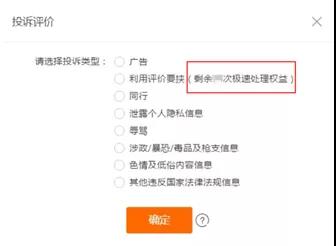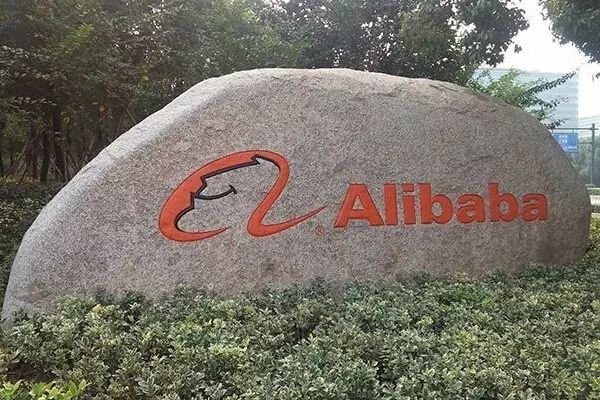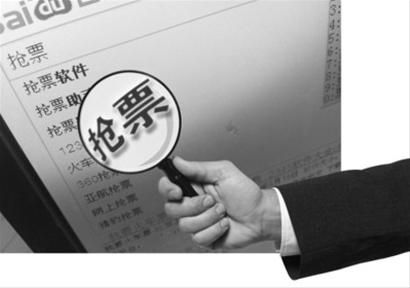1. What is the evaluation threat to deal with rights quickly? What are the benefits for merchants?
Evaluation threats to deal with rights and interests quickly are evaluation and treatment tools that are open to some merchants. In the past, when merchants were threatened by bad buyers, they had to wait for platform review for 1-3 working days to initiate evaluation complaints. After having this equity, the type of evaluation complaints initiated by merchants will immediately not be displayed on the front desk. It can be understood that with rights and interests, merchants will have the "one-click stop loss" empowerment tool, and when they encounter malicious bad reviews, they can complete self-rescue as soon as possible.
2. How can we obtain rights? How do you know if you have any rights?
1) Methods to obtain rights
① Take and pass the rights certification exam
The examination link is: https://alicert.taobao.com/cert-ali/quality/696/intro?spm=a210m.7834591.0.0.70371c125tKi5w. As long as you pass the exam (95 points) you can get the rights (the rights will be opened the day after passing the exam).
② Merchants who use advertising to evaluate their rights quickly
The rights to deal with ad evaluations quickly were opened to Tmall's entire network merchants at the end of October 2017. Merchants who can use this rights to deal with ad evaluations well (the accuracy of handling advertising evaluations reaches 90% or more) will automatically obtain the rights to deal with evaluation threats.
③ At the same time, in order to ensure the business experience of merchants in Double 11 in 2018, the evaluation threat will be quickly dealt with rights and interests. It will also be open to merchants for the official event of Double 11 in 2018 before November 11, 2018!
2) How to know if you have obtained the rights?
Log in to the Merchant Center - Evaluation Management (or Tmall Customer Voice, or Qianniu - Evaluation Management), click the "Complaints and Evaluation" button on the right side of the evaluation, in the pop-up window of selecting the complaint type, when the "Use Evaluation Threshold" complaint type has a text prompt of "N remaining fast processing rights" (see the red box in the picture below), it means that your store has obtained the "Evaluation Threshold" fast processing rights.

3. How to use permissions (use process)?
1) Introduction to the number of uses of rights
All stores that have obtained the rights will use the rights once a day. The number of equity times is not accumulated, that is, if the number of times that day is not used up, it will not accumulate until the next day. That is to say, the number of available times per day for each store is 1 time.
Starting from October 2018, if the rights have been used to quickly deal with the rights and are used correctly, the number of times the rights and interests can be used will be increased from 1 time/day to 10 time/day.
2) Introduction to the use process of rights

Detailed introduction and page screenshots of each operation step, please refer to the User Guide Manual: https://alibao.bbs.taobao.com/detail.html?postId=8797570
4. What are the scenarios where permission support processing?
1) The buyer actively requests positive reviews to return
After the buyer confirms receipt, he uses the evaluation right to threaten the merchant to return cash. After the merchant clearly refuses, the buyer gives a bad review.
2) Buyers use the bad reviews to threaten/black off
Includes the following 2 subscenarios:
① The buyer did not raise any product questions after the transaction, and directly gave a bad review, and then actively contacted the merchant to request additional money or other improper benefits.
② The buyer did not raise any product questions after the transaction and directly gave a bad review. After receiving the contact from the merchant, he actively proposed the conditions for deletion or modification of the bad review, requiring the merchant to provide additional money or other improper benefits.
3) In a transaction dispute, buyers use evaluation threats to make profits
After receiving the goods, the buyer raises the product issue. The merchant has performed complete after-sales service (such as supporting return and paying for the goods returned by the consumer), but the buyer refuses after-sales service and uses the evaluation right to ask the merchant to give additional money or other improper benefits.
4) The buyer violated his promise (provided that the merchant fulfilled his after-sales service obligations and the buyer agreed to delete the review but did not delete it)
For example: The buyer originally agreed to the merchant to delete the review after solving the after-sales problem, but later he regretted it and did not delete it.
5) The buyer's after-sales demands are unreasonable and exceed the scope of after-sales service that the merchant should bear
For example: Buyer Xiao Ming bought a coat worth 200 yuan in store A. After receiving the goods, he felt that the clothes were not in good shape and asked the merchant to refund 100 yuan to compensate for his psychological gap (that would be given a bad or negative review if he didn't make up for the money).
6) The buyer repeatedly purchases products from the same store and repeatedly gives a relatively bad or negative review
For example: In June 2018, the buyer Xiao Ming bought a piece of clothing in store A. He reported that the clothes did not like to give a bad review. A few days later, Xiao Ming bought another piece of clothing in store A and gave a bad review.
7) Buyers use medium and negative reviews to retaliate against merchants
For example: When the buyer Xiao Ming bought a product in store A, he had a dispute with the merchant, so he used his other account to purchase the product in store A again and gave a bad review in order to retaliate against the merchant.
8) Medium and negative reviews or negative reviews that have solved the after-sales problem
For example: Buyer Xiao Ming bought the product in store A, but felt that the product had a color difference, so he gave it to the middle review. After seeing the review, the merchant contacted the buyer and provided after-sales return and refund services. Then the buyer returned the product successfully and the after-sales problem was solved.
9) The buyer refuses to provide certificates of quality problems with the product and asks the merchant to provide after-sales service, and is suspected of unreasonable and bad reviews.
For example: Buyer Xiao Ming bought a pair of shoes in store A. After receiving the goods, he gave a bad review directly. The merchant contacted the buyer and asked where the product was not satisfied. The buyer said that the shoe bottom was broken and he could not wear it at all. The merchant asked the buyer to take a photo and post it. The buyer refused to provide the photos (and there were no photos of the shoes being broken in the evaluation pictures), but asked not to return the goods and only refunded them.
10) The buyer did not actually receive the goods, but gave a review
For example: Buyer Xiao Ming bought a pair of pants in store A. After the merchant shipped the goods, the buyer clicked to confirm the receipt and published an evaluation before receiving the goods (the logistics record shows that the goods are still in transportation). In this case, whether it is a good review, a moderate review or a bad review, it will be supported for handling.
11) The evaluation content does not match the actual situation
For example:
① The buyer said in the evaluation that the merchant shipped fewer goods, but the merchant proved that there were actually no small shipments through proof of monitoring records/express weights and other certificates;
② The buyer said in the evaluation that the merchant scolded people on Wangwang and did not provide after-sales service, but the merchant provided Wangwang chat history to prove that this was not the case.
12) Medium and negative reviews or negative reviews without actual meaning
For example, the following review content:
[Bad review] ………
[Medium Review] It has been so many years since Taobao learned that the review can be exchanged for points. What I am talking about below is nonsense (500 words are omitted below)
For example, the following cases:
Buyer Xiao Ming bought a mobile phone in Store A, but the review content was not written by the product. The review content was: [Bad Review] The quality of these pants is too poor, the color will drop when the water drops and it shrinks! ! Don't buy it! ! !
Note: The scenarios of evaluating the threat of rapid processing of rights and interests will continue to be added. Please pay attention to the update content of the rights and interests manual (link: https://alibao.bbs.taobao.com/detail.html?postId=8797570)
5. Definition standards and punishment standards for abuse of rights
Abuse of rights is divided into the following two categories
Category 1: Abuse of rights due to unclear cognition
Penalty standards: only warnings, no points will be deducted.
For example: The buyer is not satisfied with the product. After the merchant learns it, he is willing to provide return and refund services, but the buyer thinks it is troublesome to return the product and refuses the merchant’s after-sales service. He does not need any compensation, but only gives negative comments.
Category 2: Deliberate abuse of rights
1) Complaint the buyer without credentials and no reason: the first warning, the second deduction (4 points are generally deducted for violations of member rights)
For example: In a transaction dispute, the buyer asks the merchant to handle after-sales service on the product issue. Because the merchant refuses to provide after-sales service, the buyer gives negative comments or adds negative comments.
2) Serious and intentional abuse such as fabricating vouchers and falsification of vouchers: points will be deducted for the first time (abuse of member rights is generally deducted for 4 points in violation of regulations), and the second time, the right to use rights will be permanently recovered
For example: the merchant actively adds the buyer's WeChat and asks the buyer why the negative review is given on WeChat, and the buyer truthfully describes his dissatisfaction with the product. However, when the merchant uses the fast processing rights, he forged (PS) WeChat chat records and fabricated the situation where the buyer extorted the merchant in his after-sales demands, intending to use this as a certificate to request the platform to delete the negative review.
Finally, a malicious behavior merchant autonomy super permission hearing was held on October 17, 2018 (click here for live hearing: https://h5.m.taobao.com/qn/pc/niuba-interview.html#!/interview/10518169). Watch the live broadcast to learn about the latest information on the rapid processing of rights and interests (also known as "evaluation super permission"), to see what suggestions the merchant friends have put forward and what suggestions Taobao has adopted!
This Tmall merchant already has this equity, are Taobao merchants looking forward to it too?
Taobao will be open to merchants with high credit scores before November. For merchants who do not have direct opening, they can also obtain them after passing the exam (please click me on the examination link). For specific content, please pay attention to the subsequent promotion of this content by [Taobao Rules].
For more contents for interpreting rules videos, please click: https://idaxue.taobao.com/page/class/info.jhtml?classId=3535








 EN
EN CN
CN
